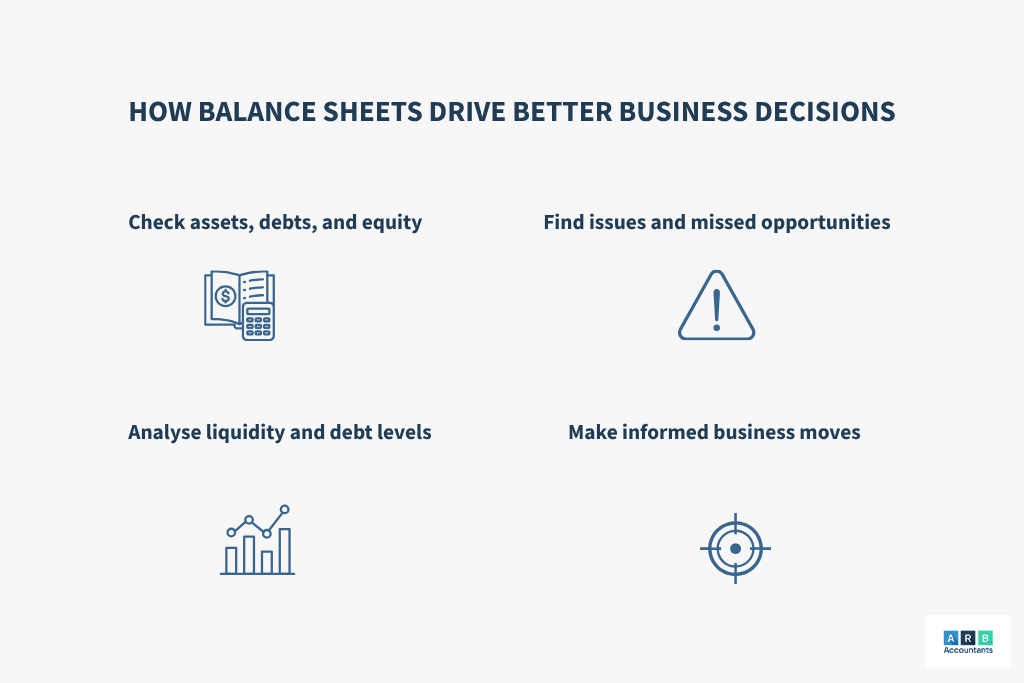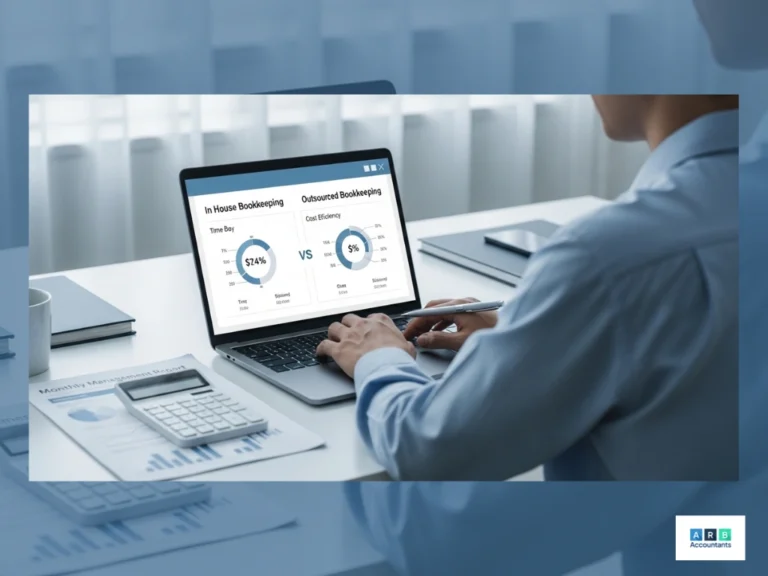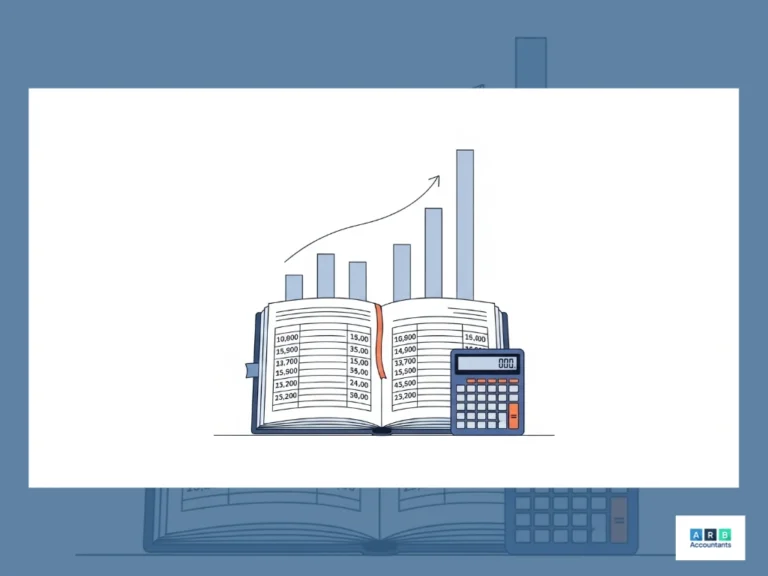
Why Is a Balance Sheet Important for Decision Making?
We all know that balance sheets are a necessary accounting task, whether you do it yourself, have an in-house accountant, or outsource your accounting. But have you ever considered why is a balance sheet is important beyond compliance? In this article, we look into how accounting helps in decision making and why is a balance sheet important for businesses, investors, and managers alike.
As trusted Southend accountants, we regularly advise local businesses on how to use balance sheets for better financial decision-making.
So, how does a balance sheet help in decision making? The financial statement reported by a company’s balance sheet provides a snapshot of their financial position, giving management key information that can help to make informed decisions. This emphasizes why is a balance sheet important in financial statements decision making.
Read on to learn more about understanding the balance sheet, its advantages and disadvantages, and how accounting and financial statements support strategic decisions.
- What is a Balance Sheet and Why is it Useful in Business?
- How Do the Income Statement and the Balance Statement Help Management to Make Good Decisions?
- Why is the Balance Sheet the Most Important Financial Statement?
- How is the Balance Sheet Useful to Investors?
- Advantages and Disadvantages of a Balance Sheet
- What is the Purpose of a Balance Sheet in Decision Making?
- Accounting and Bookkeeping Services Essex
- Frequently Asked Questions
What is a Balance Sheet and Why is it Useful in Business?

A balance sheet is one of three core financial statements that report on a company’s financial landscape. It considers assets, liabilities, and shareholder equity. When it comes to making important decisions, it’s best to have such information at your disposal to be able to make good, informed decisions that are less likely to end in regret.
What’s more, balance sheets can identify issues in a company’s finances that could impact the business, as well as anticipate potential future problems. This allows management to design and implement a suitable course of action to correct the issue, and avoid future issues. That’s why is a balance sheet important for long-term planning and short-term troubleshooting.
Balance sheets also hold key information for both current and potential investors – it provides information about the company’s financial position, and whether or not they are, or would be, a good investment. Similarly, a balance sheet is a critical tool for banks when deciding whether or not to lend to a company. It indicates why is a balance sheet important clearly for outsiders as well.
Moreover, a balance sheet provides useful information for suppliers; a strong balance sheet indicates that a company is reliable, can be trusted, and it would be a good customer. Likewise, a company could look at the balance sheet of a supplier to determine which suppliers to use, depending on the health of their finances.
Our accountants for freelancers often use balance sheet insights to guide smarter day-to-day decisions.
How Do the Income Statement and the Balance Statement Help Management to Make Good Decisions?
Managers need accurate company information, including information about their financial position, to be able to even consider certain options. Many important decisions will have an impact on assets, liabilities, and equity, for better or worse, therefore it is crucial that managers consider the balance sheet while making key decisions. This reaffirms why a balance sheet is important in day-to-day business operations.
When analysing how a decision will impact the business, managers can then make provisions and plans as necessary to minimise or maximise its impact. This is where financial statements decision making becomes a core function of leadership.
READ RELATED ARTICLE: How does accounting help managers to make decisions?
Why is the Balance Sheet the Most Important Financial Statement?
The balance sheet, income statement, and cash flow statement are the three most important financial statements. Many consider the balance sheet to be the most important, but it may be more beneficial to consider all three as a whole when using the information to make informed decisions. Again, understanding balance sheets is at the heart of this evaluation.
To make a good decision, managers need the financial data from the balance sheet to ensure that the decision will not have a detrimental effect on their financial position. However, they should also consider cash flow to ensure that the decision will not have a negative short-term impact.
Similarly, the income statement tells managers how well the company is performing, a crucial metric that may impact a decision. All other metrics may indicate that an option would be a good decision, but if the company is not performing as well as they’d like, or is performing better than expected, this information could influence a decision.
At ARB, our specialist contractor accountants also rely on balance sheet data to help contractors plan cash flow, tax obligations, and long-term financial stability.
How is the Balance Sheet Useful to Investors?
Balance sheets tell investors how much a company is actually worth, detailing its financial health, including any assets and liabilities – crucial information to know when deciding whether or not to invest. It indicates why is a balance sheet important clearly for outsiders as well.
Advantages and Disadvantages of a Balance Sheet
Whilst the preparation of balance sheets probably seems to be both necessary and tedious, they have a number of advantages and disadvantages that should be considered.
Advantages:
- Keeping things in balance – the equation must always hold, and any deviation will indicate any accounting failures which can then be fixed.
- Calculation and analysing ratios – helps to prove the company’s ability to pay its liabilities, bills, etc.
- Obtaining credit and capital – helps to prove the creditworthiness of a company. This is why is a balance sheet important when seeking loans or funding from investors.
Disadvantages:
- Missing assets – only acquired assets are accounted for.
- Mis-stated Long-Term Assets – long-term assets last for more than the annual reporting period, therefore will depreciate over time below its accounted-for value at the time of reporting.
- Snapshot of a particular date – balance sheets are only truly accurate at the time of reporting; assets, liabilities, and equity will fluctuate throughout the year. Hence, understanding balance sheets must include knowing their limitations.
What is the Purpose of a Balance Sheet in Decision Making?
Still wondering what is the purpose of a balance sheet? In short, it provides a full view of a business’s finances at a specific point in time. This helps with everything from hiring decisions and expansion to pricing strategies and cost-cutting. Without understanding a balance sheet, business owners could risk basing decisions on incomplete or outdated financial information.

Excellent customer service. Efficient professional financial advice. One of a kind person and great team. Will highly recommended.
Accounting and Bookkeeping Services Essex
ARB Accountants offer a wide range of accounting and bookkeeping services in Essex and across the UK, including the preparation of balance sheets. Our chartered accountants in Essex will calculate your annual balance sheet whilst ensuring that you fully understand your financial landscape, and how it can impact your business.
Get in touch with us today to learn more about how we can help you keep on top of your business’ finances






